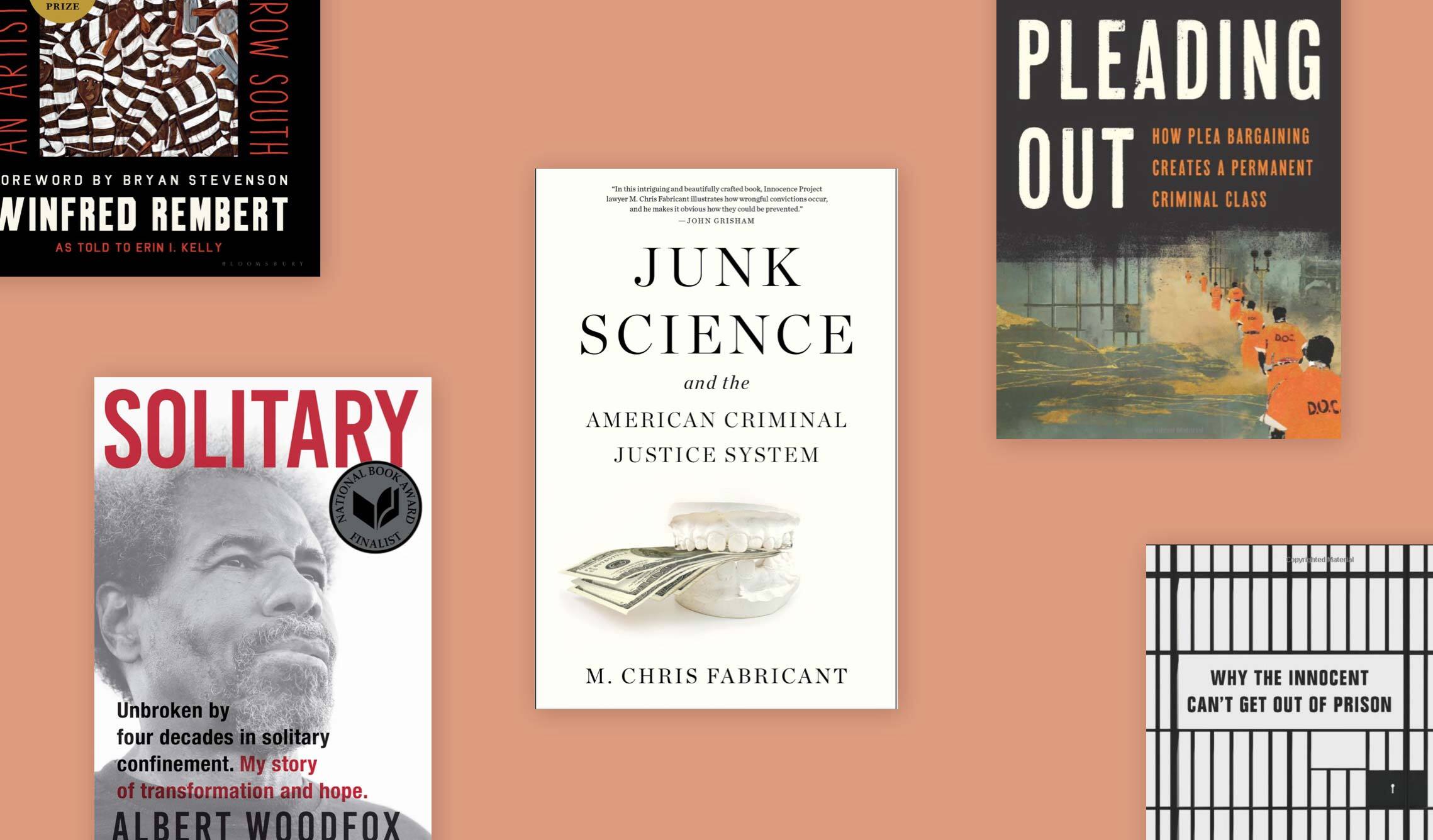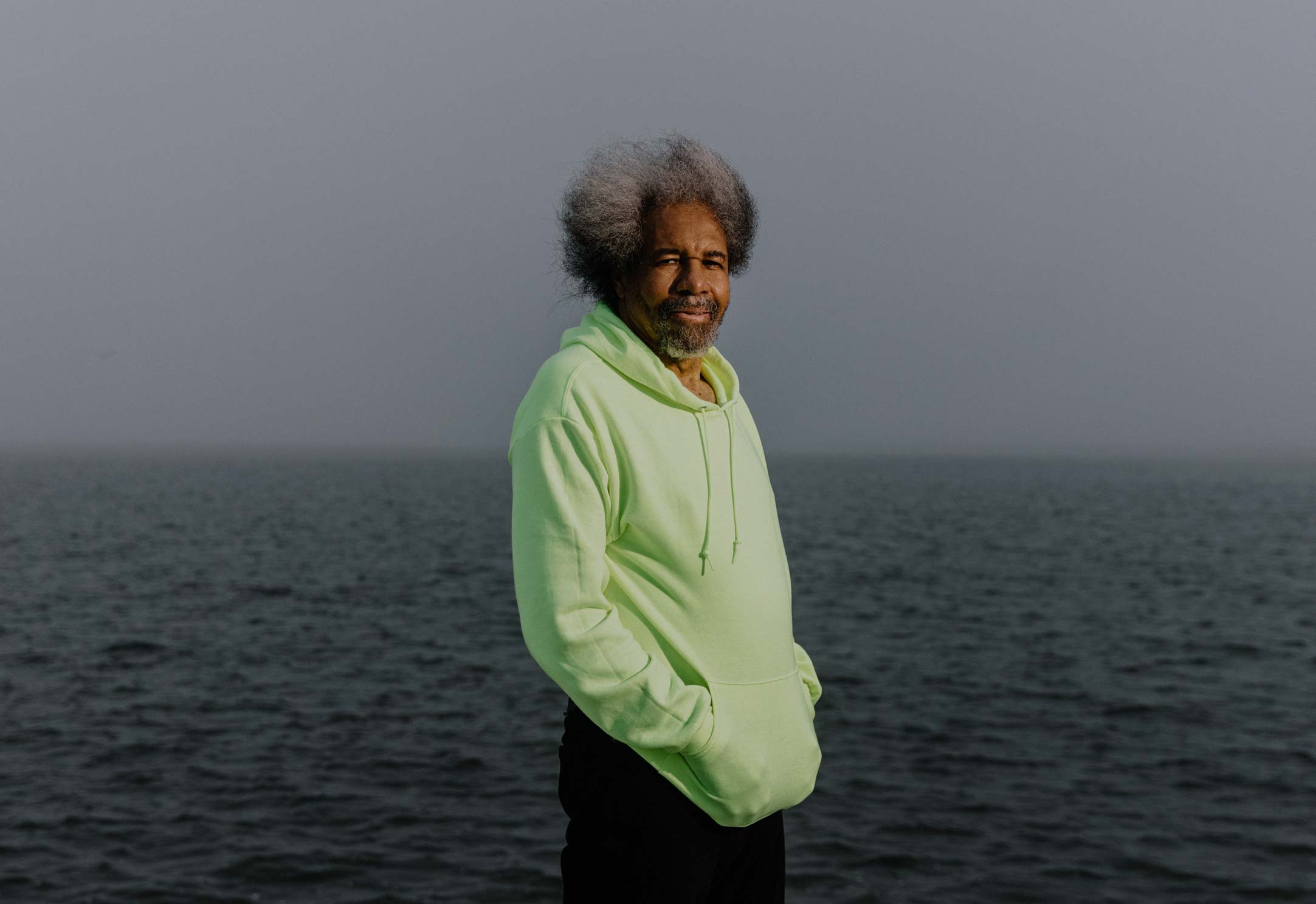The Innocence Project’s 9 Must-Reads of 2022
From inspiring stories of survival to insightful reads on the causes of wrongful conviction.
12.21.22 By Innocence Staff
From deeply moving personal storytelling to thought-provoking research, these new books are our must-reads of 2022 for those looking to deepen their understanding of wrongful conviction, its causes, and how to advance justice.
These books written by experts, system-impacted people, attorneys, and artists highlight different facets of the criminal legal system and the need for change.
1. Junk Science and the American Criminal Justice System by Chris Fabricant
The Innocence Project’s very own Director of Strategic Litigation Chris Fabricant pens this powerful book diving into the misapplication for forensic science and the use of flawed forensic methods. In his book, Mr. Fabricant unpacks how faulty forensic methods were developed and how they can still lead to wrongful convictions today — things we see too often in our work. Available to purchase here.
2. Manifesting Justice: Wrongly Convicted Women Reclaim Their Rights by Valeena Beety
Valena Beety, an attorney and the founding director of the West Virginia Innocence Project, writes of the unique impact and challenges of wrongful conviction on women and the LGBTQ community. In particular, Manifesting Justice highlights the case of Tami Vance and Leigh Stubbs, whose trial and case were tainted by homophobia. Available to purchase here.
3. Solitary: A Biography by Albert Woodfox
This deeply moving autobiography was published in 2019 but has made our list again this year in tribute to the late Albert Woodfox, who died in August 2022. Mr. Woodfox was an exoneree and civil rights activist whose unbreakable spirit continues to inspire us to keep fighting for justice. He is widely reported to have served the longest period in solitary confinement — approximately 40 years — of any incarcerated person in U.S. history. Solitary, a National Book Award and Pulitzer Prize finalist, is his story. Available to purchase here.
4. Barred: Why the Innocent Can’t Get Out of Prison by Daniel Medwed
Legal scholar Daniel Medwed examines the role of the criminal legal system’s stringent procedural rules that often keep wrongly convicted people trapped in prison without a pathway to justice. Barred takes a look at how innocent people are left without any means to get back into court to prove their innocence, even when there is compelling evidence that a wrongful conviction has occurred. This book exposes the legal hurdles wrongly convicted people must overcome while illustrating the devastating impact of wrongful incarceration on innocent people and their loved ones, painting a stark portrait of how our criminal legal system is failing the innocent. Available to purchase here.
5. That Bird Has My Wings: The Autobiography of an Innocent Man on Death Row by Jarvis Jay Masters
In 1990, Jarvis Jay Masters was convicted as an accessory to the murder of a guard at San Quentin prison in California, where Mr. Masters had been serving a sentence for armed robbery. At age 23, Mr. Masters was sentenced to death. He has maintained his innocence and spent the last 32 years working to prove his innocence while writing prolifically. His memoir is a moving reflection on his journey — from his difficult childhood to his long fight for justice and his embrace of Buddhism. Available to purchase here.
6. Pleading Out: How Plea Bargaining Creates a Permanent Criminal Class by Dan Canon
While jury trials are portrayed as common on TV and in movies, only a small percentage of cases actually go to trial. The overwhelming majority end in plea bargains. Still, coercive plea bargaining has led countless innocent people to plead guilty to crimes they did not commit, with approximately 25% of exonerated people pleading guilty to crimes they didn’t commit. Pleading Out takes a look at how the practice of plea bargaining can impede true justice. Available to purchase here.
7. Duped: Why Innocent People Confess — and Why We Believe Their Confessions by Saul Kassin
Over 10% of exonerated people falsely confessed, according to the National Registry of Exonerations. Yet, many who are not steeped in the criminal justice system may find it hard to imagine what could compel a person to confess to a crime they didn’t commit. In Duped, psychologist Saul Kassin, a leading expert on false confessions, explores the causes of false confessions — and the tactics and conditions used to elicit them — and why we believe them even when the evidence doesn’t line up. This insightful book includes the voices of the exonerated and touches on the Innocence Project’s work. Available to purchase here.
8. Chasing Me to My Grave: An Artist’s Memoir of the Jim Crow South by Winfred Rembert as told to Erin I. Kelly
Artist Winfred Rembert tells the story of how he was arrested without being charged during a Civil Rights march in the ‘60s and later incarcerated in this Pulitzer Prize-winning memoir. Mr. Rembert spent seven years in chain gangs in Georgia and, during that time, learned to work with leather, a skill he further developed as an artist after his incarceration. In Chasing Me to My Grave, his artwork is showcased alongside his story, painting a powerful portrait of the struggles of the Civil Rights era, the brutalities of incarceration, and the resilience of his community through both language and art. Available to purchase here.
9. The Innocents by Taryn Simon
Twenty years after its initial publication — and on the 30th anniversary of the Innocence Project’s founding — The Innocents has been reissued with previously unpublished images, original police transcripts, court transcripts, and more. This striking collection of imagery and stories by artist Taryn Simon captures 46 wrongly convicted individuals in locations significant in their wrongful conviction stories. The new edition includes previously unpublished images, a new introduction by Innocence Project co-founders Peter J. Neufeld and Barry C. Scheck, and much more. Available to purchase here.


Leave a Reply
Thank you for visiting us. You can learn more about how we consider cases here. Please avoid sharing any personal information in the comments below and join us in making this a hate-speech free and safe space for everyone.